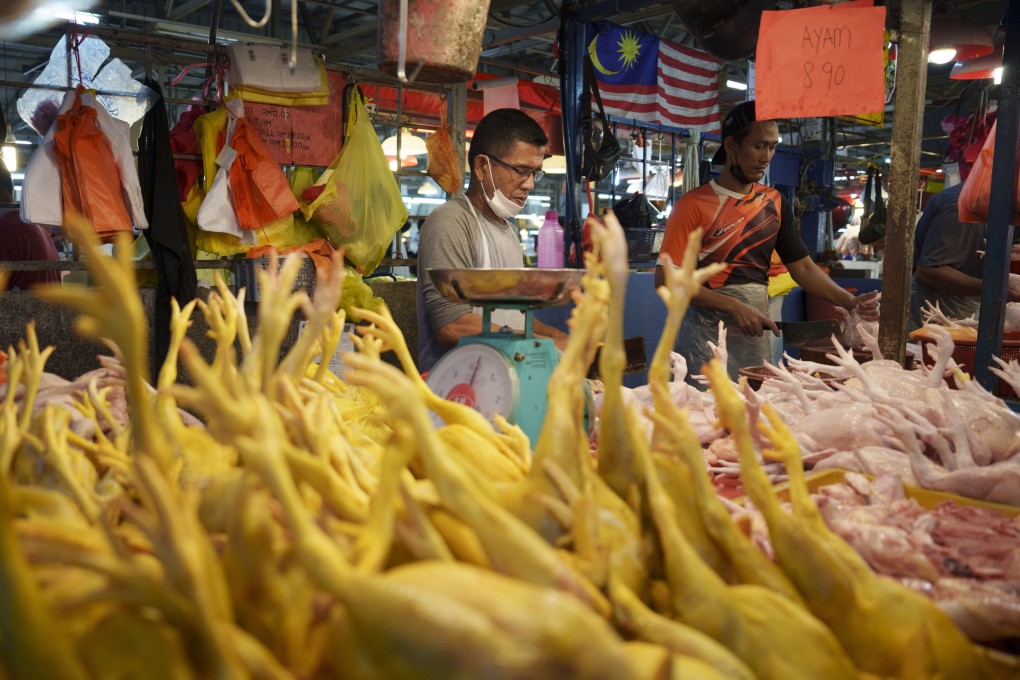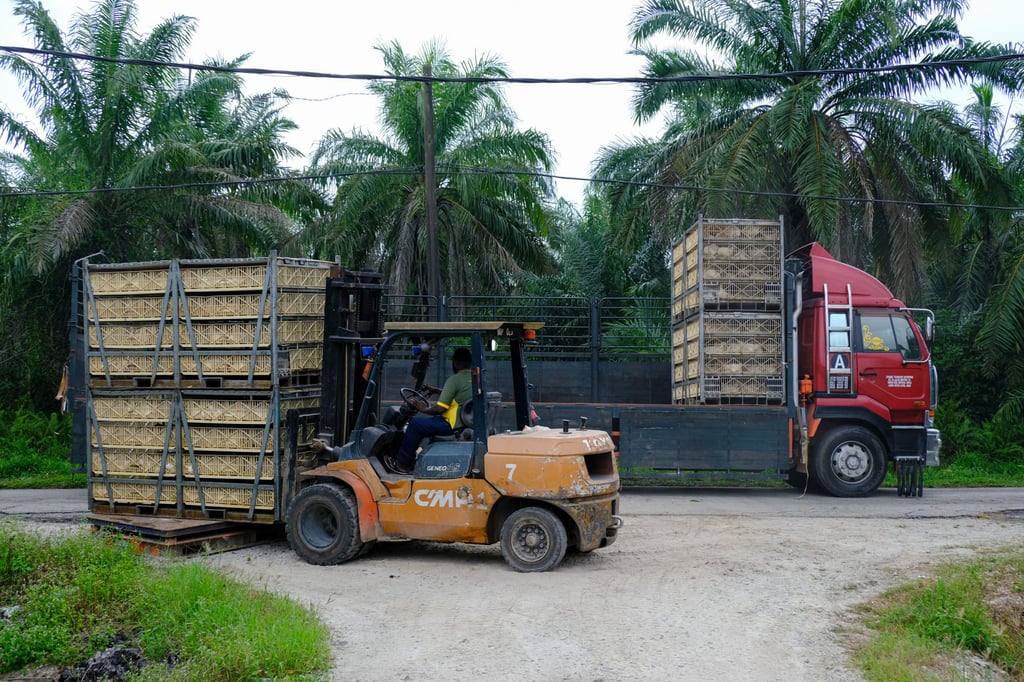Advertisement
Explainer | Malaysia’s poultry export ban: when will it end, how have people reacted, will Singapore have to eat less chicken rice?
- Malaysia announced the ban on May 23 to stem local supply shortages, cutting off one-third of Singapore’s chicken supply indefinitely
- The city state has urged people to avoid hoarding frozen chicken, while Singapore’s most famous chicken rice store Tian Tian says it may have to suspend selling its main dish
Reading Time:4 minutes
Why you can trust SCMP
9

Malaysian chicken exporters this week scrambled to deliver their last batches of fresh chickens across the border to neighbouring Singapore, ahead of an export ban that took effect at midnight on Wednesday.
The ban was announced last week by Malaysian Prime Minister Ismail Sabri Yaakob amid local supply shortages. The war in Ukraine has also limited the export of raw materials such as corn and soybeans which are key ingredients in chicken feed, leading to price increases.
Initially cautious about mentioning the conflict, Ismail Sabri on May 28 said Malaysia was directly affected by supply shortages caused by Russia’s invasion of Ukraine.
Advertisement
“The Russia-Ukraine war has affected countries worldwide even though they are not involved in warfare. Malaysia is directly affected by supply shortages,” Ismail Sabri said during his visit to Tokyo.

Why has Malaysia imposed a ban and how long will it last?
Ismail Sabri announced the export ban on May 23, following an emergency cabinet meeting to address mounting public pressure over the government’s failure to mitigate a shortage in domestic chicken supplies that had been making headlines since the last quarter of 2021.
Advertisement
Advertisement
Select Voice
Select Speed
1.00x